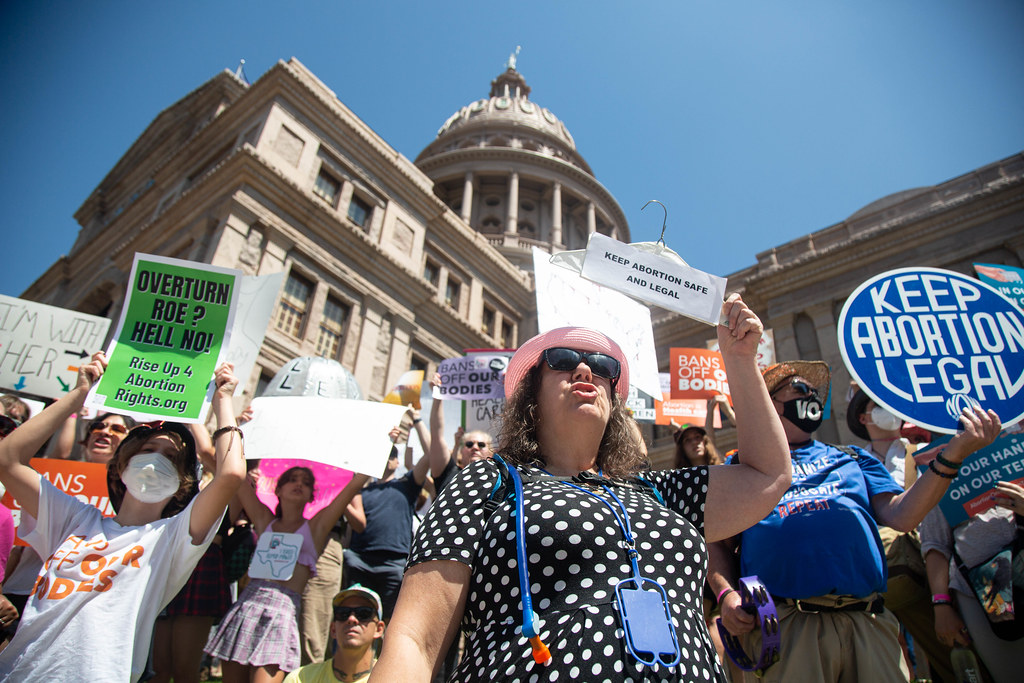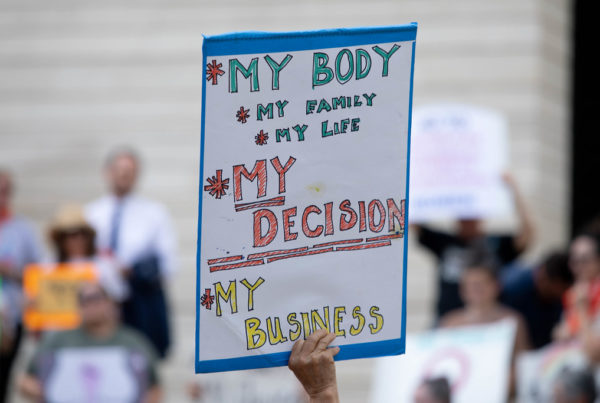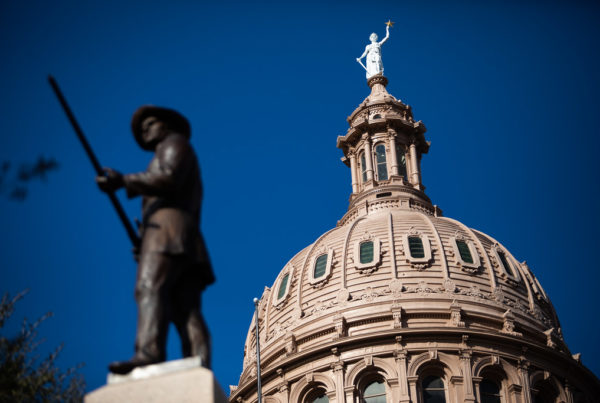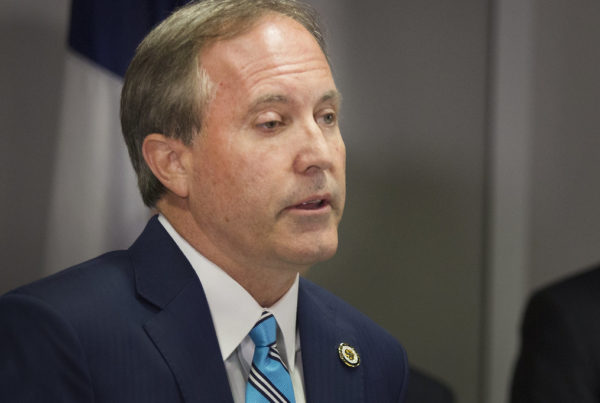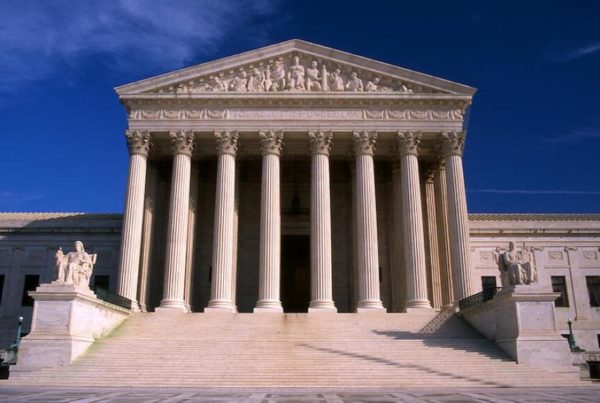In a 6-3 decision, the U.S. Supreme Court on Friday overturned Roe v. Wade, the landmark 1973 opinion that established the constitutional right to an abortion. The court’s conservative majority said the right to end a pregnancy should be an issue instead decided by state legislatures.
“The Constitution does not prohibit the citizens of each State from regulating or prohibiting abortion,” the court’s conservatives wrote in the opinion.
Texas is now poised to eliminate abortion access in the state by enacting a so-called trigger law that was passed in 2021. Here are the details:
What is Texas’ trigger law, and what does it mean for Texans seeking abortions?
A reversal of Roe v. Wade shifts the power to decide the legality of abortion from the federal level to the states, explained Elizabeth Sepper, a professor of law and scholar of religious liberty, health law and equality at the University of Texas at Austin. She spoke with the Texas Standard in May, when a draft opinion on abortion by the Supreme Court was leaked.
In Texas, that means a near-total ban on abortion. Texas is one of more than a dozen states that have passed trigger laws that further restrict abortion in the aftermath of a Roe v. Wade reversal.
» The Texas Standard wants to hear from you: Share your reaction to the Supreme Court’s abortion decision
“Last year, [Texas] passed a law that stated if the Supreme Court overrules Roe v. Wade and abortion is no longer protected by the federal Constitution, then abortion will be completely illegal in the state of Texas,” said Caroline Mala Corbin, a constitutional law professor at the University of Miami School of Law who spoke with the Standard. “So, it is triggered by the Supreme Court overruling Roe v. Wade.”
That law, Texas House Bill 1280, makes it a second-degree felony “for a person who knowingly performs, induces, or attempts an abortion” according to the bill analysis. The penalty increases to a first-degree infraction “if the unborn child dies as a result of the offense.”
The legislation makes no exceptions for rape or incest; the only exception is if a pregnancy would kill or severely injure the person carrying the child, Corbin said. It also adds a fine of at least $100,000 for each offense.
Those fines are for people who perform an abortion, not the people who are getting the abortion, Corbin explained, and punishments could also extend to life in prison for performing an abortion.
The Texas law, the Human Life Protection Act of 2021, is set to go into effect 30 days after the Supreme Court’s judgment, which will be issued separately from its Friday opinion, Texas Attorney General Ken Paxton said in an advisory.
“So while it is clear that the Act will take effect, we cannot calculate exactly when until the Court issues its judgment,” Paxton wrote. “My office will publicly announce an effective date for the Act as soon as possible — and we look forward to doing so.”
Seema Mohapatra, a Murray visiting professor of law at Southern Methodist University, told Texas Standard in May that the Texas trigger law could have a disproportionate impact.
“Practically, people who are seeking an abortion in Texas will have very little options, especially if they are not able to travel to a far-away state,” she said. “It really does affect peoples’ lives, and when we look at the fact that forced pregnancy really has different outcomes depending on what race you are, we know that Black women are much more likely to die during pregnancy than other women. This has differential impact on people of color and poor people, and the court opinion really ignores that.”
What does this mean for Texas’ current abortion law?
Texas already has one of the most restrictive abortion laws on the books with Senate Bill 8, the so-called heartbeat bill, which state lawmakers also passed last year. It effectively bans abortion after six weeks of pregnancy, before most people know they are pregnant, and allows for private citizens to take to court people who perform abortions and collect $10,000 and legal fees if the lawsuit is successful. Corbin says it’s possible SB 8 could continue to exist alongside the trigger law.
“It’s true that abortion would be entirely forbidden, but the focus of the trigger law are those performing an abortion,” she said. “There could still be penalties for people who assist with the abortion under the existing law. So, you could have double the effect by targeting both the people who perform and the people who aid anyone getting an abortion.”
Since SB 8 took effect, thousands of Texans have traveled out of state to receive abortions, KUT reported in March.
“Between September and December 2021, an average of 1,391 Texans per month obtained abortions at these out-of-state facilities, with monthly totals ranging from 1,330 to 1,485,” researchers at the University of Texas at Austin’s Texas Policy Evaluation Project wrote. Most of the patients went to Oklahoma or New Mexico.
But that access changed last month when Oklahoma Gov. Kevin Stitt signed into law the nation’s strictest abortion ban, which prohibits all abortions with few exceptions. That leaves New Mexico as the last neighboring state where Texas women seeking an abortion can travel for the procedure.


